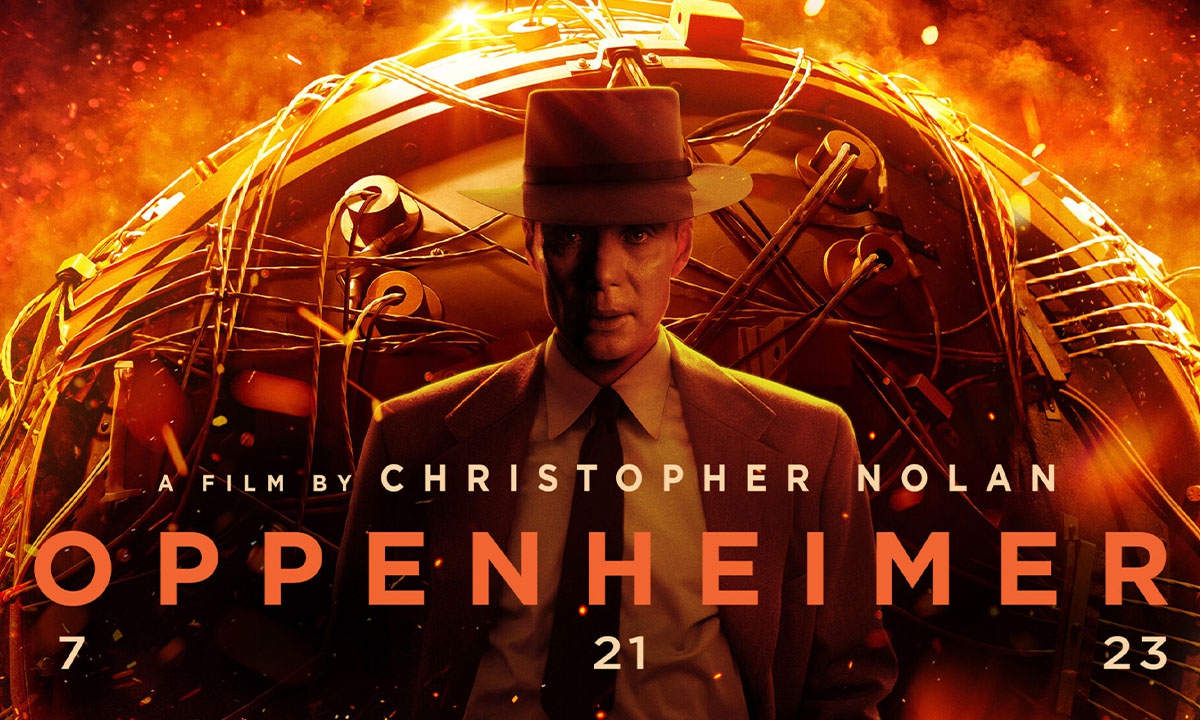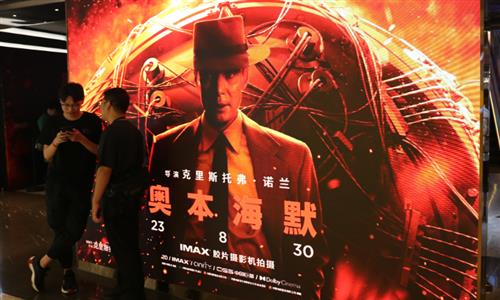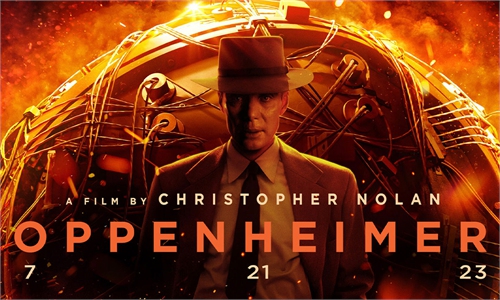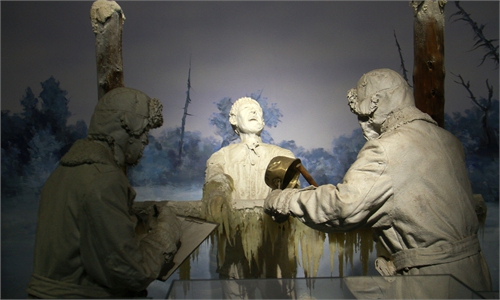
Promotional material for film Oppenheimer Photo:Courtesy of Douban
With the release of the Oscar-winning film Oppenheimer in Japan, American and Japanese netizens have recently engaged in a "war of words" over the history of World War II (WWII), once again bringing to light Japan's wrong understanding of this part of history.
Regarding the actions of the US and Japan during WWII, the two countries have always had different perceptions. Occasionally, there have also been conflicts between the two countries.
For example, the US stressed the role of atomic bombs in ending the war and ensuring fewer casualties, while Japan condemned the US for dropping atomic bombs.
Despite this, the US generally condones Japan's understanding of WWII historical issues and even helps Japan cover up its past crimes and perpetuate erroneous perceptions of WWII history. For instance, former US secretary of State Hillary Clinton reportedly corrected the term "comfort women," changing it to the more neutral expression "enforced sex slaves" in an official State Department document. In a longer historical context, it can be found that the Japanese government has been stubbornly adhering to a wrong view of history, while the US government's position on this is quite subtle.
In its relationship with Japan and related historical issues revolving around WWII, the US undoubtedly occupies a dominant position. The US House of Representatives held a public hearing on Japan's view on WWII historical issues in 2006, in which Japan's denial of its aggression as well as its glorification of war criminals were severely criticized. Under pressure from the US, Japan revised the US-related description in the Yasukuni Shrine.
However, the US government's attitude seems more perfunctory on other historical issues: For example, proposals from US lawmakers for Japanese companies to compensate prisoners of war survivors have not received a positive response from Congress.
The fact that the US government is so negative on the issue of Japan's WWII perception is due to a number of factors.
First, the US bears a great deal of responsibility for the formation of Japan's erroneous view of the history of WWII. After the war, the US did not hold the Japanese emperor accountable, nor did it eradicate the influence of the old bureaucracy and the business oligarchy in Japan, providing a systemic and psychological foundation for Japan to deny its historical crimes in the future. And the US has never had the courage to reflect on itself.
Second, there is no strong demand within the US for addressing Japan's wrong understanding of the history of WWII, unlike in trade disputes. The Congress' passive responses and the lack of public resonance are ultimately because the American people do not feel the "pain" of historical issues, leading to a lack of urgency for the government to address them.
Third, the US has always viewed historical issues from a utilitarian lens, fearing that delving into history will affect Japan's loyalty to the US and help countries like China, North Korea, and South Korea pressure Japan, which will not benefit the US.
Lastly, the US is not innocent either. After WWII, the Japanese authorities established a special comfort facility association in order to reduce the incidence of rape cases by the occupying forces, including the US Army, according to the Wall Street Journal. With these "comfort stations" for US troops in history, the US is not in a strong position if it wants to hold Japan accountable for its past crimes.
To this day, the US still approaches the issue of Japan's view on the history of WWII with utilitarian considerations. The "awakening" of American netizens to Japan's WWII crimes is just adding a ripple to this stagnant water. However, if the US is unwilling to urge Japan to face up to its history of aggression, it may bring backlash upon itself.
The historical disputes have already and will continue to hinder the US from promoting the formation of a trilateral alliance with Japan and South Korea, and the fire of Japanese people's "hatred" toward the US' bombing has not been extinguished. Can such an ally be loyal and reliable?
The US believes that Japan failing to reflect on its history of aggression will only impact East Asian countries, but it is unaware that Washington cannot remain aloof. Irresponsible responses will ultimately lead to bitter consequences for the US.
The author is a research fellow at the Institute of American Studies at the Chinese Academy of Social Sciences. opinion@globaltimes.com.cn



